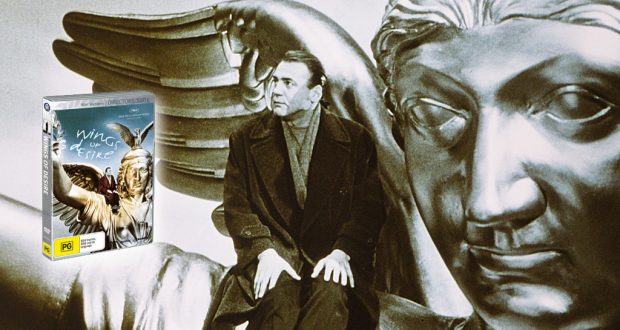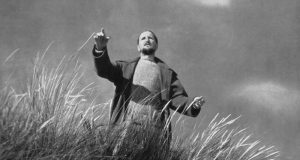Emerging as one of the key voices from the 70s New German Cinema movement, Wim Wenders is an icon of global arthouse cinema with an enviable track record that includes multiple Academy Award nominations, the coveted Palme d’Or for best film at the Cannes film festival, the Golden Lion at the Venice film festival and lifetime achievement awards at the Berlin and Locarno film festivals.
While many will be familiar with his four-decade filmography that spans a wide array of genres, tackles both fiction and documentary forms, and has seen him travelling the world from Cuba (Buena Vista Social Club) to Japan (Tokyo-Ga), Portugal (Lisbon Story) to North America (Paris, Texas), the subject of Wenders’ spirituality is less well-known and rarely covered by the press.
Although highly rare for filmmakers working today, Wenders is a doctor of theology and openly admits that his Christian-inspired spirituality fuels all his artistic endeavours. This powerful sense of the spiritual is perhaps most evident in his 1987 masterpiece, Wings of Desire starring Peter Falk and Bruno Ganz.
Exploring weighty topics such as immortality, urban loneliness, existentialism and Germany’s war-torn history, the film follows two angels as they float across the lives of a variety of West Berliners still living in a divided city.
Wenders employs multiple narrative devices built upon binaries: obviously, Berlin as the bifurcated cityscape, but also the split between fiction (as represented by the film-within-the-film) and reality, the heavenly and earthly realms, and the horrors of the Nazi past and the spectre of conflict in the film’s present (East German totalitarianism).
The result gives Wings of Desire a lingering tension that seems to be tied to the tension many devout religious followers experience as they reconcile the promise of a heavenly afterlife and maximising their own time and purpose on earth. If the film ultimately comes down on the side of celebrating humanity and the precious gift of life in the earthly realm, it also draws a deeply humanistic portrayal of God and his angels as compassionate observers.
Wenders once remarked he wanted to be a priest at a young age but was sidetracked by rock and roll and pinball machines. In Wings of Desire we see how the twin influences of faith and pop culture (Australian rocker Nick Cave makes a cameo appearance, references are made to Falk’s TV detective series Columbo and Raymond Chandler) can shape a master artist: he perfectly synthesises the spiritual with the simpler pleasures of life to conjure a loving portrait of our world and the next.
Director: Wim Wenders
Starring: Bruno Ganz,Peter Falk
1987, rated PG
Available on DVD from Madman Entertainment, www.madman.com.au
 JourneyOnline
JourneyOnline







